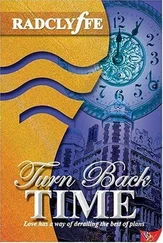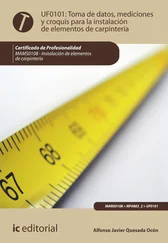My mind can sometimes be of a detectivish and therefore deductive bent, though never scholarly or journalistic, of course. I realize that I don’t even do much to track down or seek out the things that arouse my curiosity or interest me, but limit myself to registering them, taking them in; I keep still and wait as if I believed that only what comes to me anyway, without any effort on my part, will be worthwhile or deserved. At times I wonder if this might not be a way of protecting myself or defending my daily life and my few sustaining habits; if so many things, good and strange and bad, come to me anyway with almost no effort on my part, an active approach might deluge my life with good, strange, or bad things, and I’m disinclined to have that happen, even if they were all fantastic. (Or, more likely, then nothing would come to me.) If I were superstitious — I only pretend to be now and then, for fun — I would believe I possessed a strange magnetic force, tangential to my will, that attracts events and coincidences and fulfills many desires that even in thought are unexpressed; the salt and vinegar affair wouldn’t be so nonsensical if this ungoverned force were believed to have turned against the vinegar people. Unfortunately for them, the futility of their primitive saline solution has become obvious. Perhaps they should try other remedies, and several occur to me. But it’s not up to me to provide them with ideas.
The truth is that I did not call Pombo to ask him to rummage around for the manuscript, undoubtedly lost amid his overflowing morass of papers (so thankless a task would have annoyed him), nor did I shoot off to London to meet Bernard Stone (I already had my own Stones, and my Alabasters, too) or to interview Edkins of Deronda Street without waiting for Easter, and when he at last came to Madrid and we saw each other for a while in my house, it never occurred to me to take notes or record the conversation and the information he was able to give me on De Wet and Gawsworth (what nonsense I’m writing; I don’t even possess a tape recorder), most of it concerning De Wet, who, at least, had been his mentor for a week. So I no longer remember much of it, and I’m not writing him back now to put him to the trouble of again composing a few pages for my benefit (this book isn’t that important, not even to me). But maybe I don’t remember much because there wasn’t all that much more to what he finally told me in person, and that, too, is logical: however great an impression the former mercenary pilot had made on him when he was twenty-five, forty years had gone by since that brief encounter or tutelage in Madrid.
Edkins was more than seventy, a bit shy, very affable and discreet, with a guarded way of speaking, a reserved sense of humor, and the vague air of a man with a bohemian past. His eyes were confident and his nose and chin were sharp, which gave him a comical resemblance to his host and friend Pombo, both of them more reminiscent of Dickens’ Fagin than of Daniel Deronda, however Jewish Deronda was. He presented me with two booklets containing poems of his and some translations of Cernuda, and out of everything he told me about De Wet I remember only this: the self-assured, jovial De Wet was rather conspicuous in Madrid in 1951 because he sported an earring dangling from one ear, and for all I know he may also have had a blondish and piratical ponytail; he wore a black patch or smoked monocle over one eye, and his face was adorned with a moustache alone or perhaps with a moustache and beard, people’s features fade in our undulating visual memory. Though he was well-dressed and wore a tie, it was strange that he wasn’t arrested every night by Franco’s police, looking like that; being a foreigner must have protected him, or maybe he had some sort of safe-conduct, for of course he had no dearth of criminal and diplomatic contacts. The reason he had returned to Spain, where he had killed and had almost been put to death, was ludicrous, if it really was the reason and not simply a fantasy, a tall tale to entertain the boy while he ate his ham sandwiches washed down with Pernod. De Wet proposed to convince Franco to create and organize groups of partisan guerrillas, based in the Carpathian mountains, which would make raids on the Soviets (from quite a distance away, actually). The reasons he gave for this, however, weren’t exactly political, much less ideological; rather, he was convinced that once the Communist regimes had been overthrown, everything confiscated in Russia and the satellite countries after 1917 would be restored to its legitimate owners, among whom was his current wife — or perhaps she was his only wife — a Russian woman whose family had apparently lost, after the October Revolution, the best and most expensive hotel in Moscow: the Metropol, if memory does not fail. As director-general and proprietor-consort of the Metropol, he would often say, he could at last lead, without obstacles, the eventful and effervescent life that he was destined for — and from which, in any case, he was certainly not abstaining, hotel or no hotel. He must have promised himself a long youth and an even longer life if, to arrive at this goal, his first step was to persuade a numskull like Franco to finance a group of impromptu partisans who would then go cavorting around the Carpathians (and without knowing any of the languages, either, if most of them were to be Spaniards). And of course with that earring he wouldn’t have gotten very far with the puffy-cheeked, weak-jawed dictator, who would only have looked him up and down and then noted on the corner of a blank card, with petit bourgeois apprehension and preordained disgust: “Effeminate.”
I see the scene now, if it ever did take place; I see it even if it didn’t, but who knows, maybe De Wet moved heaven and earth through his friends in embassies and underworlds and was granted a very brief audience, ten or twelve minutes to describe his plans to the Soviet Union’s greatest enemy, arranging matters so that Franco wouldn’t know or remember his henchmen’s rejection of this volunteer pilot at the beginning of the war, or the services then provided to the Republic by this refoulé , or his years as an inmate condemned to death in the Gestapo’s prisons, or his early flights against Mussolini in Abyssinia. I see Franco, disguised as an admiral, sitting with his feet solidly planted, heel to toe flat on the floor, as if they had no joints and lacked all ability to move — the long, white shoes, the white socks that leave his squalid ankles all too visible — and taking a small, provincial satisfaction in the fact of having a foreigner in front of him, and what’s more a British subject, there to ask for his help. I see Hugh Oloff de Wet with his imperfect Spanish and contagious joviality running up against the brick wall of this interlocutor incapable of humor or benevolence or enthusiasm, only silent and vegetative, observing the mercenary’s far-fetched appearance rather than listening to him, the vehement verbiage merely a distraction, like a murmur that didn’t quite reach his ears. And when De Wet had finished explaining his visionary strategy — most assuredly without mentioning the coveted Hotel Metropol or the wife he already had — the dictator probably stared at him with opaque eyes and remained silent a while as if he were unacquainted with the rules of dialogue and the man in front of him had to continue speaking forever, or as if he could never be expected — no more than a totem pole could be, or a suit of armor — to say or answer anything, concrete or abstract. He may have raised a finger to his uninhabited temple, more a sign of vacuity and absence than of calculation or doubt, given a laborious sniff of his anchor-shaped nose which always seemed to be dripping, and cast a sidelong glance at the resplendent gilded buttons on his cuff, and then — perhaps — he spoke, with his long teeth clamped shut and his lips barely moving:
Читать дальше












